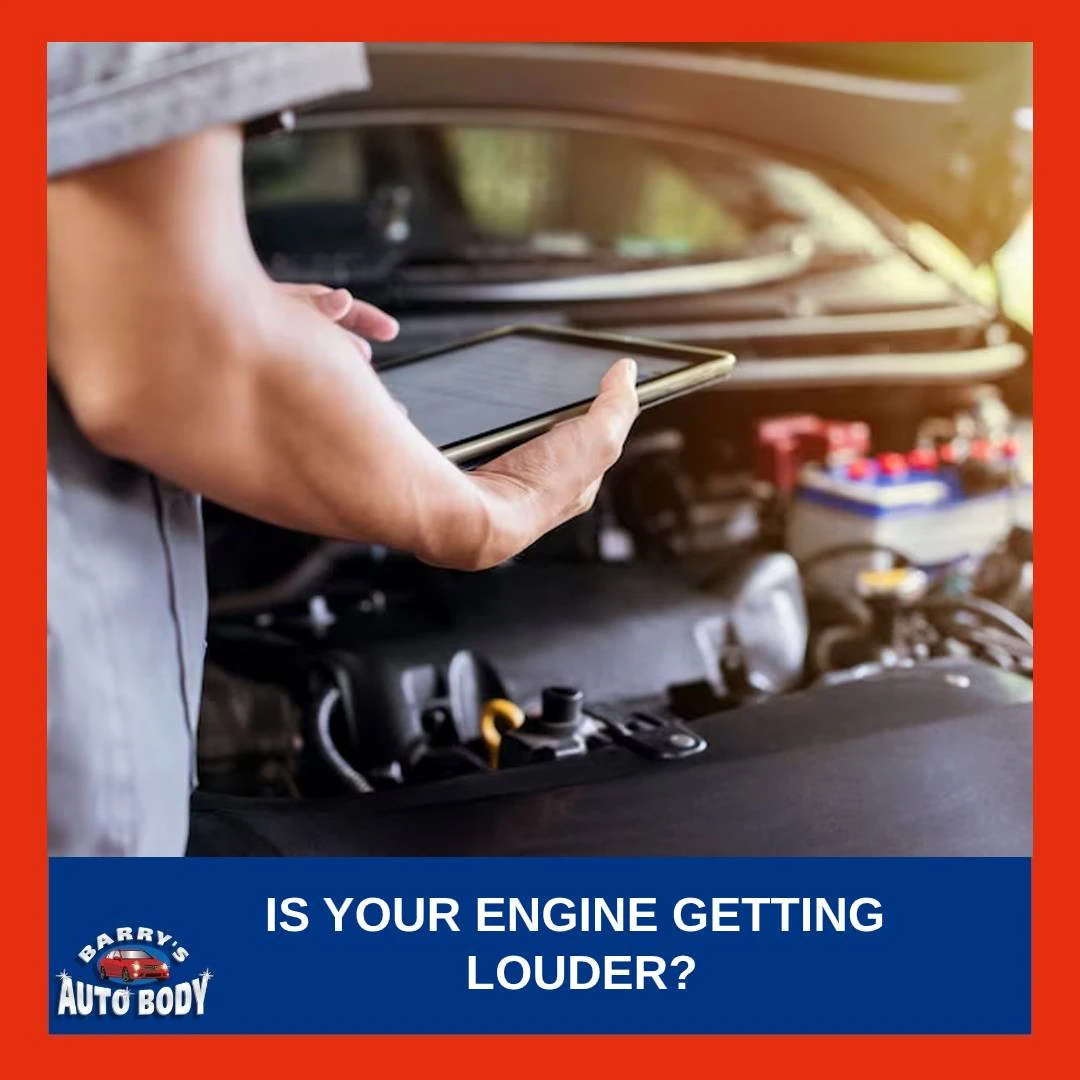Every driver knows the familiar hum of their engine. It’s part of the driving experience — a steady rhythm that tells you everything is working as it should. But what happens when that hum starts to change? Maybe you hear a faint ticking, a persistent rattle, or a knocking sound that grows louder every week.
It’s tempting to turn up the radio and ignore it. After all, cars are complicated, and a little noise might not mean much. But here’s the truth: engine noises are your car’s way of talking to you. And if that noise is getting louder, it’s often a warning sign you shouldn’t ignore.
In this guide, we’ll explore why engine noises happen, what different sounds might mean, and when you should be worried. More importantly, we’ll help you understand which issues might be minor — and which could lead to costly repairs or even engine failure if left unchecked.
Why Paying Attention to Engine Noise Matters
When people think of car trouble, they often imagine warning lights on the dashboard. But unusual sounds are often the first signs of trouble, sometimes appearing long before a sensor detects a problem.
Ignoring them can lead to:
-
Increased repair costs — A small issue like a loose belt can turn into a full breakdown.
-
Safety risks — Some noises point to problems that could cause sudden engine failure on the road.
-
Reduced efficiency — Fuel economy and performance can drop if the engine isn’t running properly.
-
Resale value impact — Prospective buyers are quick to notice unusual engine noises.
Think of your engine like your own health. A nagging cough might not be urgent, but if it gets louder and more frequent, you see a doctor. Your car deserves the same attention.
The Language of Engine Noises
Not all engine noises are created equal. Some are harmless quirks; others are cries for help. To make sense of them, let’s break them down into categories.
1. Knocking or Pinging
What it sounds like: A metallic tapping or knocking, often noticeable during acceleration.
Possible causes:
-
Poor fuel quality (low octane or contaminated gas).
-
Spark timing issues (incorrect ignition timing can cause the air-fuel mixture to ignite improperly).
-
Carbon buildup in the combustion chamber.
-
Worn bearings or rod knock (a serious mechanical issue).
Should you worry?
-
Mild knocking caused by fuel can sometimes be resolved with higher-octane gas or a fuel system cleaner.
-
Persistent knocking that gets louder may indicate rod knock — a major issue that can destroy an engine if ignored.
2. Ticking or Clicking
What it sounds like: A rhythmic ticking, often louder at idle.
Possible causes:
-
Low oil level or pressure — insufficient lubrication causes lifters or valves to tick.
-
Valve train noise — worn lifters, pushrods, or rocker arms.
-
Exhaust leaks — sometimes mistaken for ticking.
Should you worry?
-
If it started suddenly, check your oil level immediately. Running low on oil can quickly ruin an engine.
-
Ongoing ticking should be inspected, as it often points to valve train wear that worsens over time.
3. Squealing or Screeching
What it sounds like: A high-pitched squeal when starting the car, accelerating, or turning the steering wheel.
Possible causes:
-
Worn or loose serpentine belt.
-
Failing belt tensioner or pulley.
-
Brake-related noises (sometimes mistaken for engine sounds).
Should you worry?
-
A squealing belt isn’t immediately catastrophic, but if it breaks, critical systems like the alternator, water pump, and power steering could fail — leaving you stranded.
4. Grinding or Growling
What it sounds like: A deep, harsh grinding sound that grows louder under load.
Possible causes:
-
Worn bearings (alternator, water pump, or accessory drive).
-
Internal engine wear (crankshaft, camshaft, or connecting rods).
-
Transmission-related noises (often mistaken for engine issues).
Should you worry?
-
Grinding is rarely good news. The longer it continues, the more expensive the repair. Immediate inspection is wise.
5. Hissing
What it sounds like: A hiss, like air or steam escaping.
Possible causes:
-
Vacuum leak in hoses.
-
Coolant leak onto hot engine components.
-
Overheating causing pressure release.
Should you worry?
-
A vacuum leak can affect performance and fuel economy.
-
A coolant hiss is urgent — overheating can destroy an engine within minutes.
6. Popping or Backfiring
What it sounds like: Sharp pops or bangs, sometimes from the exhaust.
Possible causes:
-
Unburned fuel igniting in the exhaust system.
-
Faulty spark plugs or ignition coils.
-
Timing issues.
Should you worry?
-
Yes. Backfiring points to incomplete combustion, which can damage catalytic converters and reduce engine life.
Why Engine Noises Get Louder Over Time
It’s one thing to hear a faint noise once in a while. But if it’s getting louder, it usually means the underlying issue is progressing.
Reasons for worsening noise include:
-
Increased wear — Metal parts grind down further.
-
Looser components — A belt that’s slipping only slightly today could break tomorrow.
-
Greater pressure — Leaks (oil, vacuum, or coolant) often expand.
-
Heat cycles — Repeated heating and cooling worsen cracks and weak spots.
In other words: loud noises usually equal bigger problems.
When It’s Safe to Drive vs. When to Stop Immediately
Not all noises mean you need to pull over right away. But knowing the difference can save your engine — and your wallet.
Safe (for short-term driving):
-
Mild squealing belt.
-
Occasional light ticking (if oil levels are normal).
-
Minor rattles that don’t affect performance.
Stop immediately and call a mechanic:
-
Loud knocking or banging.
-
Grinding that increases with RPM.
-
Hissing steam or signs of overheating.
-
Sudden loss of oil pressure (check engine light + noise).
The Cost of Ignoring Engine Noises
Let’s compare two real-world scenarios:
Scenario A: Sarah notices a ticking noise.
She checks her oil, finds it’s low, and gets an oil change. Cost: $60. Noise gone.
Scenario B: Mike hears a knocking sound.
He ignores it for three months. Eventually, the connecting rod fails, punching a hole in the engine block. Cost: $5,000+ for a replacement engine.
The difference? Paying attention early.
Preventing Engine Noise Problems
The best way to avoid worrying about engine noises is through preventive maintenance:
-
Regular oil changes (and using the correct oil).
-
Replacing belts and tensioners before they fail.
-
Checking fluid levels monthly.
-
Listening for changes in the way your car sounds.
-
Addressing dashboard warning lights promptly.
FAQs: Engine Noises
Q: Can temperature affect engine noise?
Yes — some noises are more noticeable on cold starts and fade as the engine warms up.
Q: Are all ticking noises bad?
Not always. Some engines (especially high-performance ones) naturally tick more. The key is whether the sound changes or grows louder.
Q: Should I try to fix engine noise myself?
Minor things like topping off oil or replacing a belt may be DIY-friendly. But deeper noises often require professional diagnostics.
Final Thoughts
That engine noise you’ve been hearing isn’t just background chatter — it’s your car’s way of telling you something. And if it’s getting louder, the problem isn’t going away on its own.
From knocking and ticking to grinding and hissing, every sound has a cause. Some are simple and inexpensive to fix, while others warn of serious mechanical trouble. The key is knowing the difference and acting quickly.
Remember: the earlier you address unusual noises, the less you’ll spend and the safer your car will be. So if your engine is speaking louder than usual, don’t ignore it — listen closely, and let a qualified mechanic translate.

